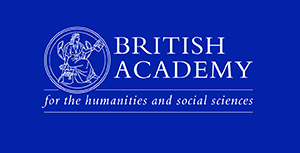Latest News Archive
Please select Category, Year, and then Month to display items
06 April 2018
Photo Rulanzen Martin
 From the left: Dr Thulisile Mphambukeli, leader of the BRICS research team that is exploring the political economy of water and food security, and her research partner, Dr Victor Okorie.
From the left: Dr Thulisile Mphambukeli, leader of the BRICS research team that is exploring the political economy of water and food security, and her research partner, Dr Victor Okorie.
A Brazil, Russia, India, China and South Africa (BRICS) delegation is to hold the 10th Annual BRICS Summit in the last week of May 2018 in Johannesburg. Dr Thulisile Mphambukeli, leader of the University of the Free State (UFS) research team alongside Dr Victor Okorie from the Department of Urban and Regional Planning, in collaboration with Prof Lere Amusan of North-West University, will ensure that water and food security is a prominent feature on the gathering’s agenda.
First, the project titled: “Exploring the political economy of water and food security nexus in BRICS and Africa” will debut at the National Institute for the Humanities and Social Sciences BRICS Think Tank Forum”.
According to Dr Mphambukeli, the key to water security is attitudinal change by means of education and conscientisation. This, she is adamant about, holds the potential to drive behavioural adjustments in the way society interacts with water.
Genetic and social approaches
Dr Okorie asserts that if strides towards reducing the demand for water were to be made, research efforts should be geared towards effecting changes at DNA level. Meaning we need to explore waterwise ways that enable crops and animals to thrive optimally.
The project also looks at social dimensions of water such as flushing a toilet. “Research activities on redesigning toilets, especially the urinal, where more than nine litres of water are used to flush less than one cubic centimetre of urine, are timely in the context of managing water and the food nexus crises,” said Dr Okorie.
Combining the genetic and social approaches would allow us to produce more with a smaller water footprint. This can be made possible by implementing precision agriculture which is about estimating and applying exact quantities of water and nutrients needed for the production of crops or the raising of livestock.
Paradigm shifting policies
Prof Amusan said the team intended to propose functional solutions that take the quality of water into consideration. Equitable production and distribution of water depends on endorsing policies of co-production between citizens, governments and the public sector. BRICS member states mutually consider water and food security as an issue of paramount significance, hence its feature on this prestigious summit’s agenda.
Dr Cawood awarded prestigious British Academy Newton Advanced Fellowship
2016-08-02


“I am absolutely thrilled to be associated with such esteemed organisations as the Newton Fund and the British Academy.” This is what Dr Stephanie Cawood, from the Centre for Africa Studies (CAS) at the University of the Free State (UFS), had to say on being awarded a prestigious British Academy Newton Advanced Fellowship. It is part of the United Kingdom’s (UK) Official Development Assistance (ODA).
Grant will assist research on the meaning of museums, monuments, spaces, and discourse
She received a grant of £62,904 (R 1,177,949.35), that will enable her to conduct research that will compare how liberation struggles have been memorialised in South Africa and Uganda. The focus will be on museums, monuments, spaces, and discourse.
The idea is to analyse the relationship between memory, space, and power, said Dr Cawood. The project will run over three years, and will involve comparative fieldwork between liberation movements in South Africa and Uganda. Dr Johnathan Fisher from the International Development Department at the University of Birmingham will be Dr Cawood’s research partner. “Building a research network between the institutions involved is an important aspect of this research,” said Dr Cawood.
Fellowship will enhance international footprint and collaboration
“I believe it will contribute significantly to my intellectual engagement, career advancement, and international footprint”.
“I believe it will contribute significantly to my
intellectual engagement, career advancement,
and international footprint”
The award also has the potential to further relations at a broader level between the UFS and the University of Birmingham. It will also strengthen a collaborative relationship between the CAS and International Development Department.
The British Academy is the UK’s national body for championing the humanities and social sciences, and counts many world-leading scholars and researchers among its ranks.